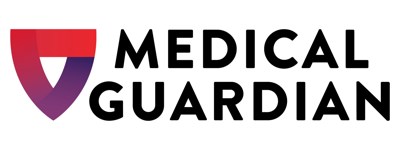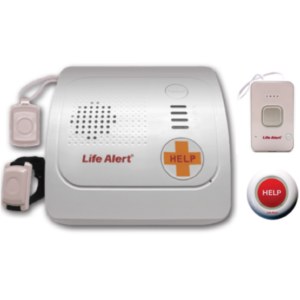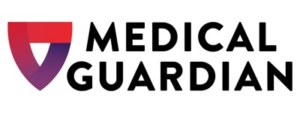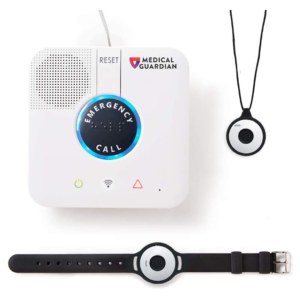Life Alert Vs Medical Guardian: Which Is Right For You?
AgingInPlace.org keeps our resources free by working as an affiliate partner with some companies mentioned on our site. These partnerships or the commission we may earn do not affect our opinions or evaluations of the products we mention. Our reviews are solely based on our research methodology and from input from our AgingInPlace.org Advisory Board. Learn more about our ad policies.
Life Alert Vs Medical Guardian: Which Is Rig...
Products carousel
Key Takeaways
- Millions of people over age 65 fall each year, so many seniors and their caregivers choose a medical alert system for peace of mind.
- Medical Guardian and Life Alert are two of the most popular companies in the medical alert field.
- Both systems have an A+ rating from the Better Business Bureau.
- Both companies partner with 24/7 response centers that are TMA Five Diamond Certified.
- Medical Guardian offers six at-home and mobile devices, and each can be equipped with automatic fall detection, where motion sensors detect when help is needed.
- Life Alert offers three systems, with customizable features like wall buttons, but no fall detection is available.
- Life Alert customers must sign a three-year contract, and the only acceptable causes for cancellation are death or moving into assisted living.
- Medical Guardian is month-to-month, but requires a three-month minimum and charges a $50 restocking fee.
Overview
Medical Guardian and Life Alert are two of the best known names in the medical alert industry. Medical alert systems are typically wearable devices designed for older adults—especially those who live alone—and others who have a high risk of falling. If you have an emergency, you simply push the emergency button rather than scrambling to dial 911. The device’s two-way speaker connects you to a trained operator, while a GPS tracking system confirms your location. Because one in four people over 65 experience a fall, a wearable alert system can give you and your loved ones peace of mind as you age at home.
You and your caregivers want to be sure that you’ve chosen the right life-saving technology for your lifestyle and needs. Medical Guardian and Life Alert offer the same basic services, with big differences in the details. Our team at AgingInPlace.org compares Life Alert vs. Medical Guardian in terms of technology, pricing, and policies to help you determine the best medical alert system for you.
Why You Can Trust Our Expert Review
Our experts independently research and recommend products we believe provide value in the lives of our readers. We’ve spent collectively more than 1,700 hours conducting in-depth research on medical alert systems.
To make our picks, here’s what we did:
- Engaged in ongoing independent research
- Consulted with geriatricians and adult caregivers
- Mystery shopped the brands
- Surveyed medical alert system users
- Tested various medical alert systems
- Interviewed experts in the field
- Read hundreds of verified customer reviews from trusted third parties such as Better Business Bureau and Consumer Reports
Cost Comparison
| Cost | Upfront fee | Activation fee | Contract | Add-on features | |
|---|---|---|---|---|---|
| Life Alert | |||||
| In-Home System | $49.95 per month | No | One-time fee of $96 | 3-year contract | No optional fall detection. |
| In-Home System + Help Button | $69.95 | No | One-time fee of $96 | 3-year contract | Wall mounted buttons: $20 per month, each. No optional fall detection. |
| In-Home System + Help Button + GPS System | $89.95 | No | One-time fee of $198 | 3-year contract | Wall mounted buttons: $20 per month, each. No optional fall detection. |
| Medical Guardian | |||||
| Classic Guardian | $29.95 per month | No | No | Month-to-month (after 3-month minimum) | Fall detection: extra $10 monthly |
| Home 2.0 | $34.95 per month | No | No | Month-to-month (after 3-month minimum) | Fall detection: extra $10 monthly. Wall-mounted buttons available at $2.99 and $4.99. |
| Mobile 2.0 | $49.95 per month | No | No | Month-to-month (after 3-month minimum) | Fall detection: extra $10 monthly |
| Mini Guardian | $39.95 per month | $124.95 one-time equipment fee | No | Month-to-month (after 3-month minimum) | Fall detection: extra $10 monthly |
| MGMove | $39.95 per month; one-time fee of $199.95 | One-time fee of $179.95 | $199.95 one-time equipment fee | Month-to-month (after 3-month minimum) | No fall detection available. |
| Life Alert | Cost | Upfront fee | Activation fee | Contract | Add-on features |
|---|
| In-Home System | Cost | $49.95 per month | Upfront fee | No | Activation fee | One-time fee of $96 | Contract | 3-year contract | Add-on features | No optional fall detection. |
|---|
| In-Home System + Help Button | Cost | $69.95 | Upfront fee | No | Activation fee | One-time fee of $96 | Contract | 3-year contract | Add-on features | Wall mounted buttons: $20 per month, each. No optional fall detection. |
|---|
| In-Home System + Help Button + GPS System | Cost | $89.95 | Upfront fee | No | Activation fee | One-time fee of $198 | Contract | 3-year contract | Add-on features | Wall mounted buttons: $20 per month, each. No optional fall detection. |
|---|
| Medical Guardian | Cost | Upfront fee | Activation fee | Contract | Add-on features |
|---|
| Classic Guardian | Cost | $29.95 per month | Upfront fee | No | Activation fee | No | Contract | Month-to-month (after 3-month minimum) | Add-on features | Fall detection: extra $10 monthly |
|---|
| Home 2.0 | Cost | $34.95 per month | Upfront fee | No | Activation fee | No | Contract | Month-to-month (after 3-month minimum) | Add-on features | Fall detection: extra $10 monthly. Wall-mounted buttons available at $2.99 and $4.99. |
|---|
| Mobile 2.0 | Cost | $49.95 per month | Upfront fee | No | Activation fee | No | Contract | Month-to-month (after 3-month minimum) | Add-on features | Fall detection: extra $10 monthly |
|---|
| Mini Guardian | Cost | $39.95 per month | Upfront fee | $124.95 one-time equipment fee | Activation fee | No | Contract | Month-to-month (after 3-month minimum) | Add-on features | Fall detection: extra $10 monthly |
|---|
| MGMove | Cost | $39.95 per month; one-time fee of $199.95 | Upfront fee | One-time fee of $179.95 | Activation fee | $199.95 one-time equipment fee | Contract | Month-to-month (after 3-month minimum) | Add-on features | No fall detection available. |
|---|
Feature Comparison
| Connection | Wall-mounted buttons? | Two-way communication? | Battery life | Water- resistant? | |
|---|---|---|---|---|---|
| Life Alert | |||||
| In-Home System | Landline and cellular | No | Yes | 10 years | Yes |
| In-Home System + Help Button | Landline and cellular, | Yes | Yes | 10 years | Yes |
| In-Home System + Help Button + GPS System | Landline and cellular, GPS | Yes | Two-way communication in the home system, but not the GPS system. | 10 years | Yes |
| Medical Guardian | |||||
| Classic Guardian | Landline | No | Yes | 32-hour backup battery | Yes |
| Home 2.0 | WiFi, 4G | Yes | Yes | 32-hour backup battery | Yes |
| Mobile 2.0 | WiFi, GPS, 4G LTE | N/A (mobile model) | Yes | 5 days | Yes |
| Mini Guardian | WiFi, GPS, 4G LTE | N/A (mobile model) | Yes | 5 days | Yes |
| MGMove | WiFi, GPS, 4G LTE | N/A (mobile model) | Yes | 24 hours | Yes |
| Life Alert | Connection | Wall-mounted buttons? | Two-way communication? | Battery life | Water- resistant? |
|---|
| In-Home System | Connection | Landline and cellular | Wall-mounted buttons? | No | Two-way communication? | Yes | Battery life | 10 years | Water- resistant? | Yes |
|---|
| In-Home System + Help Button | Connection | Landline and cellular, | Wall-mounted buttons? | Yes | Two-way communication? | Yes | Battery life | 10 years | Water- resistant? | Yes |
|---|
| In-Home System + Help Button + GPS System | Connection | Landline and cellular, GPS | Wall-mounted buttons? | Yes | Two-way communication? | Two-way communication in the home system, but not the GPS system. | Battery life | 10 years | Water- resistant? | Yes |
|---|
| Medical Guardian | Connection | Wall-mounted buttons? | Two-way communication? | Battery life | Water- resistant? |
|---|
| Classic Guardian | Connection | Landline | Wall-mounted buttons? | No | Two-way communication? | Yes | Battery life | 32-hour backup battery | Water- resistant? | Yes |
|---|
| Home 2.0 | Connection | WiFi, 4G | Wall-mounted buttons? | Yes | Two-way communication? | Yes | Battery life | 32-hour backup battery | Water- resistant? | Yes |
|---|
| Mobile 2.0 | Connection | WiFi, GPS, 4G LTE | Wall-mounted buttons? | N/A (mobile model) | Two-way communication? | Yes | Battery life | 5 days | Water- resistant? | Yes |
|---|
| Mini Guardian | Connection | WiFi, GPS, 4G LTE | Wall-mounted buttons? | N/A (mobile model) | Two-way communication? | Yes | Battery life | 5 days | Water- resistant? | Yes |
|---|
| MGMove | Connection | WiFi, GPS, 4G LTE | Wall-mounted buttons? | N/A (mobile model) | Two-way communication? | Yes | Battery life | 24 hours | Water- resistant? | Yes |
|---|
Fall Detection Comparison
| Fall detection? | GPS locator? | Call center and hours | |
|---|---|---|---|
| Life Alert Systems | No | Yes | 24/7, TMA Five Diamond Certified response center |
| Medical Alert Systems | Yes, in all systems except MGMove Smartwatch | Yes | 24/7, TMA Five Diamond Certified response center |
| Life Alert Systems | Fall detection? | No | GPS locator? | Yes | Call center and hours | 24/7, TMA Five Diamond Certified response center |
|---|
| Medical Alert Systems | Fall detection? | Yes, in all systems except MGMove Smartwatch | GPS locator? | Yes | Call center and hours | 24/7, TMA Five Diamond Certified response center |
|---|
Life Alert Overview

Life Alert, the brand that popularized the phrase “I’ve fallen and I can’t get up!” has been in the medical alert business for more than 30 years. The company handles more than 2 million calls per year and employs over 600 people from their California-based headquarters. Its mission is to keep older adults comfortable and independent in their homes with a personal emergency response system.
Who Is Life Alert Ideal for?

Life Alert, and other personal emergency response systems, protect older adults and others at risk of falling or experiencing a medical emergency. Conditions that make people more likely to fall include vision issues, foot pain, the use of some medicines, and difficulties with walking or balance.
A person who chooses Life Alert over competitors wants a recognizable name with many years in the business. The Life Alert customer isn’t a budget shopper dissuaded by a long-term contract or high cost of monthly monitoring or activation fees. They want a simple, straightforward help button, and aren’t shopping for automatic fall detection since Life Alert products do not feature this technology. Users are content to do their shopping over the phone, as Life Alert products cannot be purchased online or in stores.
What Are the Costs of Life Alert?
Life Alert devices have a monthly monitoring fee and one-time activation fee.
- Basic In-Home System: $49.95 per month and $96 activation fee
- In-Home System + Help Button: $69.95 per month and $96 activation fee
- In-Home System + Help Button + GPS System: $89.95 per month and $198 activation fee
For those comparing systems, most medical alert companies do not charge activation fees. But those who do, like Philips Lifeline, charge far less at $50 per device. These high activation fees are unique to Life Alert.
Pros and Cons of Life Alert
Pros
-
A+ rating from the Better Business Bureau.
-
More than 30 years in the medical care alert business.
-
Millions of calls answered per year, adding up to one about every 11 minutes.
-
Response center is TMA Five Diamond certified.
-
The pendant has a 10-year battery life.
Cons
-
Prospective customers must call a toll-free number to request a brochure for information.
-
Life Alert will only allow customers to break their three-year contract if the intended user passes away or moves into assisted living.
-
No automatic fall detection devices are available, even as an added feature.
-
More expensive than many competitors, including Medical Guardian.
-
Outdated purchasing where customers cannot buy devices or see pricing through the website. Prospective customers must request a brochure by telephone.
Life Alert Plans and Models
The In-Home System is Life Alert’s starter package, which includes a wearable help button and a base unit that can operate with either landline or cellular service. You can roam within 800 feet of the base unit and stay covered. In an emergency, the customer presses the bright red emergency help button to connect with Life Alert’s TMA Five Diamond Certified call center.
This starting package is $49.95 per month, with a one-time $96 activation fee.
The In-Home System + Help Button offers all the same features of the starter package, but adds one wall-mounted help button to be placed strategically in a high-risk area of the home. Many choose to mount this button in the bathroom or stairway. This system costs about $20 more than the starter package at $69.95 per month, with that same one-time activation fee of $96.
The premier Life Alert package adds a mobile medical alert system so you can wear your emergency button both at home and on the go. The portable, lightweight pendant protects you from anywhere outside of your home. This is a good option if you want coverage while running errands or traveling.
Unfortunately, the GPS pendant does not include a two-way speaker, so you can only summon for help but not communicate with their operator like they can with the In-Home System. For mobile tracking services and at-home coverage, this Life Alert package is about $89.95 per month, with a one-time $198 activation fee.
Medical Guardian Overview

Medical Guardian is the Philadelphia-based producer of one of the most popular medical alert brands. The founder, Geoff Gross, started Medical Guardian when his own grandmother experienced a few falls at home. Today, the company helps caregivers keep a close eye on their loved ones through six monitored systems and the MyGuardian caregiver app.
Who Is Medical Guardian Ideal for?

The company markets to those with medical conditions that increase the potential for falls. Medical Guardian customers might have medical conditions or memory loss that make them less likely to push a button for help, so they can opt for automatic fall detection. For those whose medical conditions cause them to lose consciousness, fall detection offers an extra layer of security.
The company offers month-to-month contracts for customers and caregivers who need flexibility. While Life Alert offers all specific product information in brochures and toll-free phone calls, Medical Guardian shoppers will appreciate that relevant information is listed freely on its website. The brand’s intuitive website and checkout system makes it easy to compare devices and add on customized features.
What Are the Costs of Medical Guardian?
The costs for most Medical Guardian products are broken down by a monthly monitoring fee and one-time equipment fee.
- Classic Guardian: $29.95 per month with no equipment fee
- Home 2.0: $34.95 per month and $124.95 equipment fee
- Mobile 2.0: $39.95 per month and $199.95 equipment fee
- Mini Guardian: $39.95 per month and $124.95 equipment fee
- MGMove Smartwatch: $39.95 per month and $199.95 equipment fee
The Active Guardian and Freedom Guardian products aren’t included in this review because they have been retired.
Pros and Cons of Medical Guardian
Some of Bay Alarm Medical’s pros and cons to consider are:
Pros
-
Website clearly lists systems, packages, and pricing for easy price comparisons and online ordering.
-
Lockbox allows first responders easy entry into the home in case of medical emergency.
-
Response center is TMA Five Diamond Certified
-
Customers can cancel their plans any time and pay month-to-month.
-
Free activation and installation for Medical Guardian products.
-
Farthest reaching range in the medical alert market: 1,300 to 1,400 feet from the base.
Cons
-
While user contracts are month-to-month, they do require a three-month minimum.
-
Automatic fall detection is an extra $10 monthly fee with most systems.
-
Damaged equipment could result in a $350 fee.
-
For the lowest price, users must pay their yearly fee up front.
-
Some devices require recharging every few days.
-
No risk-free trial.
Medical Guardian Plans and Models
Medical Guardian’s base model, the Classic Guardian, is known for its impressive radius. Although it’s an at-home model with a landline connection, you can wander away from the base up to 1,300 feet. This system is suited for those with large properties or who spend time in their yard.
This at-home system is a simple push button worn as a pendant around the neck or wrist. This pendant is connected to the base station when you stay within the 1,300-foot range.
When you press the button during an emergency, you’re connected to a trained emergency response team, who can evaluate the situation and decide what response is appropriate. If it’s a false alarm, the operator will confirm there’s no problem. This system starts at $29.95 per month as is excellent if you live in a rural area or have poor cell service. Automatic fall detection is an extra $10 per month.
The Medical Guardian Home 2.0 system is the level up from the Classic Guardian. Get another 100 feet of protection for a total radius of 1,400 feet from the base unit (about four football fields). This at-home package also tacks on an extra 32-hour backup battery in case of power outage.
The Home 2.0 help button pendant is interchangeable between the necklace and wristband. This system is customizable: you can loop in caregivers through the MyGuardian app, add fall detection, order an additional button for your spouse, and add wall-mounted buttons. The Home 2.0 starts at $34.95 per month, but increases with these added customizations. Plus, it has a $124.95 one-time equipment fee.
The Mobile 2.0 is only as heavy as a pair of AA batteries, making it one of the most lightweight portable devices.
Wear the lightweight pendant while running errands or traveling, knowing you’re protected 24/7. The compact Mobile 2.0—which clips onto a belt, purse, or pendant—uses GPS, WiFi, and 4G LTE to monitor you without interruption. Bluetooth medical alert systems like Mobile 2.0 allow caregivers to receive updates through the MyGuardian App.
The battery life is three to five days, and the device is waterproof for use in the shower, a high-risk area for falls. The monthly monitoring fee is $39.95 for this mobile monitoring device, plus a one-time equipment fee of $124.95.
Like Medical Guardian’s other two on-the-go devices, the Mini Guardian uses 4G LTE, WiFi, and cellular coverage to pinpoint your exact location and keep you connected to the monitoring center 24/7. It differs from the other mobile devices in that it’s an all-in-one device. The two-way speaker, help button, and tracking system exist within one lightweight pendant.
The Mini Guardian features high-definition and noise-cancellation technology to streamline communication, and packs a lot of go into its small package. The device’s long-lasting battery can run up to five days on a single charge. The Mini Guardian costs $39.95 per month, but note that this device includes a $124.95 one-time equipment fee.
The MGMove is different from traditional smartwatches by virtue of its straightforward design perfect for older adults. The MGMove tracks you as you go about your day wearing a discreet medical alert that looks like a tech-savvy accessory. However, in an emergency, it becomes a link to the 24/7 response center by pressing and holding the red help button.
Access weather reports, monitor heart rate, and track your steps—all from your smartwatch. You can even set up reminders and message loved ones if you purchase the Social Circle Apps Package. The watch battery lasts 24 hours on a two-hour charge, so you don’t ever have to leave the house without it. The MGMove one-time equipment fee is $199.95, and the monthly monitoring cost is $39.95.
Similarities Between Life Alert and Medical Guardian
Both Life Alert and Medical Guardian have a range of systems that include home and mobile medical alert devices. The two companies offer water-resistant, wearable buttons with access to two-way communication with a trained professional. When the wearer activates the help button, the customer reaches a 24/7 response center where operators evaluate the situation and summon EMTs when needed. Each company partners with a TMA Five Diamond Certified response center.
Main Differences
The differences between Medical Guardian and Life Alert begin even before you make your purchase. When browsing online, you’ll notice that Medical Guardian’s web presence is more modern than Life Alert’s. Medical Guardian shoppers can view packages, details, and prices, as well as purchase Medical Guardian products online. Life Alert info must be requested and ordered by calling a toll-free phone number.
While you can use Medical Guardian products on a month-to-month basis, Life Alert requires a three-year contract that can only be canceled in the event of death or a move to assisted living. Medical Guardian does not offer a risk-free trial, but their services can be canceled anytime after the first three months.
Medical Guardian offers five emergency alert systems compared to Life Alert’s three. Medical Guardian offers optional automatic fall detection for an extra cost, while no Life Alert products include fall technology. The Life Alert system also has a smaller range from pendant to base: 800 feet compared to Medical Guardian’s range of 1,300-1,400 feet. On the other hand, Life Alert leads in battery life. Its batteries last for 10 years, while Medical Guardian products need to be recharged every two to seven days, depending on the product.
Life Alert offers systems at a higher price point than Medical Guardian, and requires activation fees. The most basic Life Alert system, the In-Home System, is $49.95 per month, with an extra $96 installation fee. The comparable Medical Alert model, the Classic Guardian, is $29.95 per month with no equipment or activation fees.
What Customers Are Saying About Life Alert
Life Alert has an A+ from the Better Business Bureau (BBB). Its customer reviews vary widely; Life Alert has a 1.8 out of 5 stars rating on Trustpilot, but 4.9 out of 5 stars on Consumer Affairs. User reviews across third-party platforms are mixed, with some complaints about the cancellation process, contract, and customer support. We’ve curated a selection of reviews to give readers a sense of the varied experiences of customers.
“I fell in my driveway after returning from the hospital for a broken foot and ankle. I was on crutches and lost my balance. I had my GPS device and pressed the Life Alert button. I got a fast response and the rescue squad was promptly there and got me into the house. They even moved some furniture so I could get about even easier! That was above and beyond. Through the whole event the Life Alert person stayed on the phone with me with encouraging words until I was safe inside. Thank you!!” – Verified customer review, consumeraffairs.com.
“My father passed last week. My mother had signed a contract for the both of them at $49.95 a month each. I just called to ask Dad to be dropped from the account, which is on a month-to-month contract. I was told that the only way to remove Dad was to present a copy of the death certificate or an obituary (Mom doesn’t want one), a letter, and his equipment. We can wait weeks for a certificate, during which time Life Alert will continue billing for him. Once Dad is taken off, mother’s bill will be $89.90 a month; they offered only a discount of $10 for taking Dad off. I had to disturb my mom THREE times to even be able to cancel the service, which is what she told the man to do the FIRST time I had to disturb her. I am furious that my 82-year-old mother had to deal with these people. HORRIBLE customer service. This was my seventh call for mom, and every other company was extremely helpful. Not so Life Alert. I’m so angry they just put my mother through this.” – Verified customer review, trustpilot.com.
“The sales person is very good and tells you that if your mother can no longer use the service because she dies or is incapacitate that the contract ends. But when that happens and you call Life Alert they put you through three switchboards and then tell you that they need a letter from a doctor! Outrageous. As if things aren’t hard enough caring for an elderly family member with dementia who can no longer live independently!” – Verified customer review, bbb.org.
What Customers Are Saying About Medical Guardian
Like Life Alert, Medical Guardian also has an A+ rating from the BBB. Customer reviews are also mixed, with 1.17 stars from the BBB and 4.2 out of 5 stars on Consumer Affairs. Customer experiences reflect some frustrations with the technology, as well as positive experiences with the devices. We’ve noticed that representatives from Medical Guardian responded to most negative reviews, which may speak to the company’s level of customer service. Each Medical Guardian review below is from a verified customer.
“The device worked very well for my mother. The choice of a necklace or a wristband was very nice to have. It allowed her to stay independent much longer because if she fell, help would be on the way immediately. They always called me at home to notify me that her device had been activated. Peace of mind… priceless.” – Verified customer review, consumeraffairs.com.
“So far the first time the button was activated by accident, they responded quickly and it appeared to be working great. A few times the battery was low and they did email one of us about it. However, they did not follow the order of notification that we requested and they did not email all of us as they said they would. Recently the unit’s battery went completely dead and NO ONE received an email so I am a little concerned about whether we can rely on them if an actual emergency occurs.” – Verified customer review, trustpilot.com.
“I cannot say enough good things about Medical Guardian. My mother recently received a system in Dec 2018. This past week, she suffered a stroke while at her home, alone. Activating her necklace pendant, she had emergency personnel in her home within 7 minutes, and was transported and receiving emergency stroke protocol within 25 minutes. This is monumental in time! Without them, she would not have been so lucky! Great staff answering her call. Very professional, and reassuring! I highly recommend them!” – Verified customer review, bbb.org.
Bottom Line
The best medical alert package for you may be different from someone else—various users may have different needs and priorities. That’s why we recommend Medical Guardian over Life Alert. Not only does Medical Guardian offer more options—five systems to Life Alert’s three—but also more choices for customization, like color, size, wearability, fall detection, and wider ranges from the base. Plus, active seniors can choose from the MGMove watch, Mini Guardian, and Mobile 2.0, while Life Alert has only one mobile device.
Having options matters. Gareth Mahon, CEO of TheCareside, described how much value an older adult can get from picking a device that fits their lifestyle. “It might seem small, but how one wears their medical alert device has an effect on their overall experience with it,” he explained. “If it is a nuisance to wear something around the neck, or someone has arm mobility issues, they can prioritize finding a device that’s worn around the wrist.”
We also like that if you don’t like your Medical Guardian product, or if other circumstances arise, you aren’t locked into a long term, multi-year contract. Medical Guardian users pay month-to-month, while Life Alert users make a three-year commitment and can only cancel in the event of death or a move to assisted living. However, we read customer complaints that expressed difficulty with cancellation, even after meeting these conditions.
For some shoppers, automatic fall detection will make or break their choice. Most Medical Guardian products have the capacity for fall technology—a necessity for some conditions and other medical risks, like side effects of medications. Life Alert does not, taking it off the table for many concerned caregivers.
How We Rate Medical Alert Systems
You deserve the best products for a better quality of life. As such, we strive to create honest, helpful reviews that are backed by firsthand shopping, testing, and research. Our content is medically reviewed and unbiased to help you choose the right medical alert system for you or your loved one.
From over 1,000 hours of research, we choose 11 of the top brands that we believe are the best medical alert systems. Medical Guardian is one of our top medical alert system picks. We didn’t include Life Alert in our official testing or rating process since it has too many drawbacks like lack of transparent pricing and product information on website, limited product offerings, no fall detection, and a three-year contract.
We did the following throughout our research process:
- Consulted with geriatricians and adult caregivers
- Mystery shopped the brands
- Surveyed medical alert system users
- Tested various medical alert systems
- Interviewed experts in the field
- Read hundreds of verified customer reviews from trusted third parties, such as Better Business Bureau (BBB) and Trustpilot
We grade each medical alert company against a 1-10 rating scale and score them according to the following categories:
- Essential features
- Product functionality
- Special features
- Customer service
- Purchasing process
Features and criteria within each of these five categories are assigned point values. The more points a company receives for each criteria, the higher they score in the overall category.
See our full explanation of how we rate medical alert systems for a full breakdown of criteria in each category and our scoring system.
Our Comparisons Of Medical Alert Systems
- Life Alert vs Medical Guardian
- Medical Alert vs Medical Guardian
- Lively vs Medical Alert
- Life Alert vs Medical Alert
- Medical Guardian vs Bay Alarm Medical
WRITTEN BY
MEDICALLY REVIEWED BY
Jenny is an Adult-Gerontology Primary Care Nurse Practitioner in NYC with a passion for working with aging adults and their family members. Prior to her clinical training at Vanderbilt School of Nursing, she worked in business and medical research at Harvard Business School and Massachusetts General Hospital. As a Caregiving Coach at Givers, Jenny helps family members manage the financial, emotional, and educational stresses of caring for their loved ones who are aging in place.
View Reviewer- Safe Use of Medicines for Older Adults. National Institute on Aging. June 26, 2019.
- Facts About Falls. Center for Disease Control. August 6, 2021.
- Older people are more likely to live alone in the U.S. than elsewhere in the world. Pew Research Center. March 10, 2020.
- Falls: Key Facts. World Health Organization. April 26, 2021.
Do you want to cite this page? Use our ready-made cite template.




